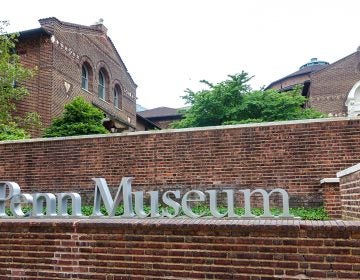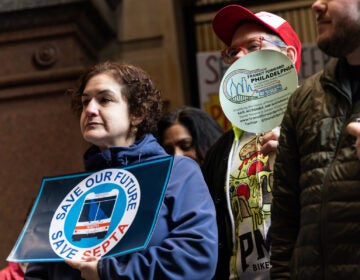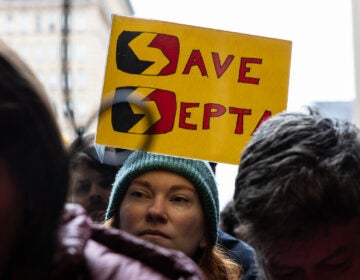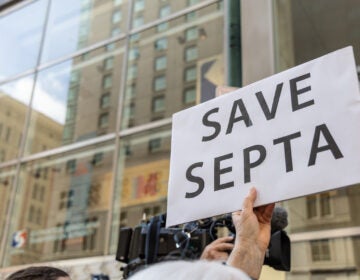No lay-offs, more cleaners and more service: SEPTA proposes forward-looking $1.5B budget
The transit agency’s spending plan relies on a temporary cash infusion of $1.5 billion in federal COVID-19 relief funds.
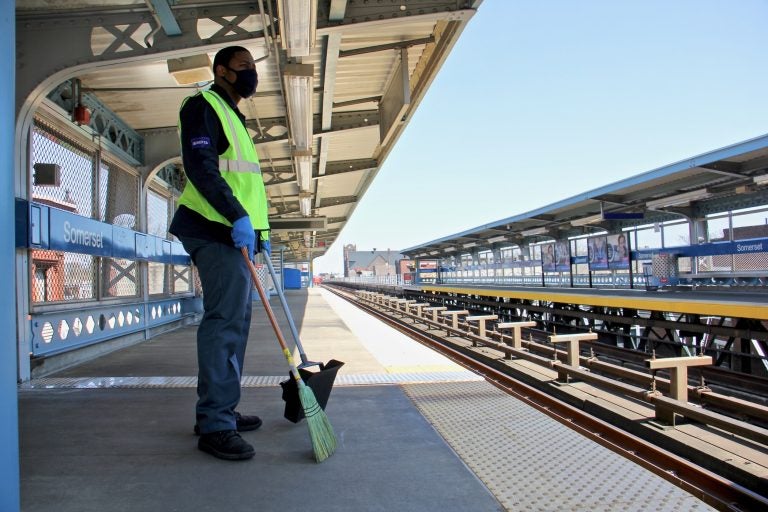
File photo: A SEPTA employee stands by with broom and basket at the spruced-up Somerset Station on the Market-Frankford line. (Emma Lee/WHYY)
After a devastating year, SEPTA officials proposed Friday a $1.52 billion operating budget that will delay planned fare increases for at least another year and maintain service benefits for riders while cutting other expenses.
As SEPTA seeks to maintain stability after months of bleeding about $1 million a day at the farebox, the plan relies on a temporary cash infusion of $1.5 billion in federal COVID-19 relief funds.
“There are many reasons for optimism as we head into the new fiscal year, but we are also continuing to face difficult realities,” SEPTA General Manager Leslie Richards said. “This budget proposal would provide resources for ramping up service as more customers return, and advance efforts to make our operations sustainable in the long-term by finding savings and efficiencies.”
The transit agency anticipates ending the fiscal year next June with 300 fewer employees across the 9,400-strong workforce by not filling vacancies as people leave the organization.
The plan includes funding to increase service levels to assist the region’s post-pandemic recovery. Officials say they’re monitoring ridership patterns and will modify service as demand increases. With the proposed budget, officials seek to increase service on buses, subways, and trolleys to 96% of pre-COVID levels. Over the course of the year, the agency expects to restore Regional Rail service to 80% — a process that will be closely analyzed as the agency moves ahead with long-term strategizing about adapting the commuter rail to the new remote-work trends.
The authority also highlighted investments in safety and security — a prioritization that SEPTA workers had pushed for through their union, Transport Workers Union Local 234.
After SEPTA drivers and other employees spoke out about threats to their safety experienced on the job at stations and while operating vehicles, the authority contracted security guards from AlliedBarton for deployment along the Market-Frankford Line to assist SEPTA police with patrolling the line. The 90-day contract is worth up to $1.5 million.
The new budget proposal also allotts funds for up to 200 new cleaners assigned to stations and vehicles. Cleanliness has also become an issue of contention for riders and workers during the pandemic, and became an urgent issue recently when needles and urine contributed to the destruction of elevators at the Somerset Station, leading to a sudden, temporary closure.
But while the agency faced major hurdles over the last year, thousands of essential workers relied on its daily service to do their life-saving work, Richards emphasized in a release announcing the budget.
“SEPTA has been the backbone of this region during the pandemic,” said Richards. “We are looking forward to welcoming more customers back, and we are working hard to make SEPTA an attractive option for new riders.”
Still, the road to recovery won’t be easy. As vaccinated commuters and others begin to return to the system more than a year after the pandemic began, ridership remains at roughly 38% of pre-COVID levels.
 WHYY is one of over 20 news organizations producing Broke in Philly, a collaborative reporting project on solutions to poverty and the city’s push towards economic justice. Follow us at @BrokeInPhilly.
WHYY is one of over 20 news organizations producing Broke in Philly, a collaborative reporting project on solutions to poverty and the city’s push towards economic justice. Follow us at @BrokeInPhilly.

Subscribe to PlanPhilly
WHYY is your source for fact-based, in-depth journalism and information. As a nonprofit organization, we rely on financial support from readers like you. Please give today.


